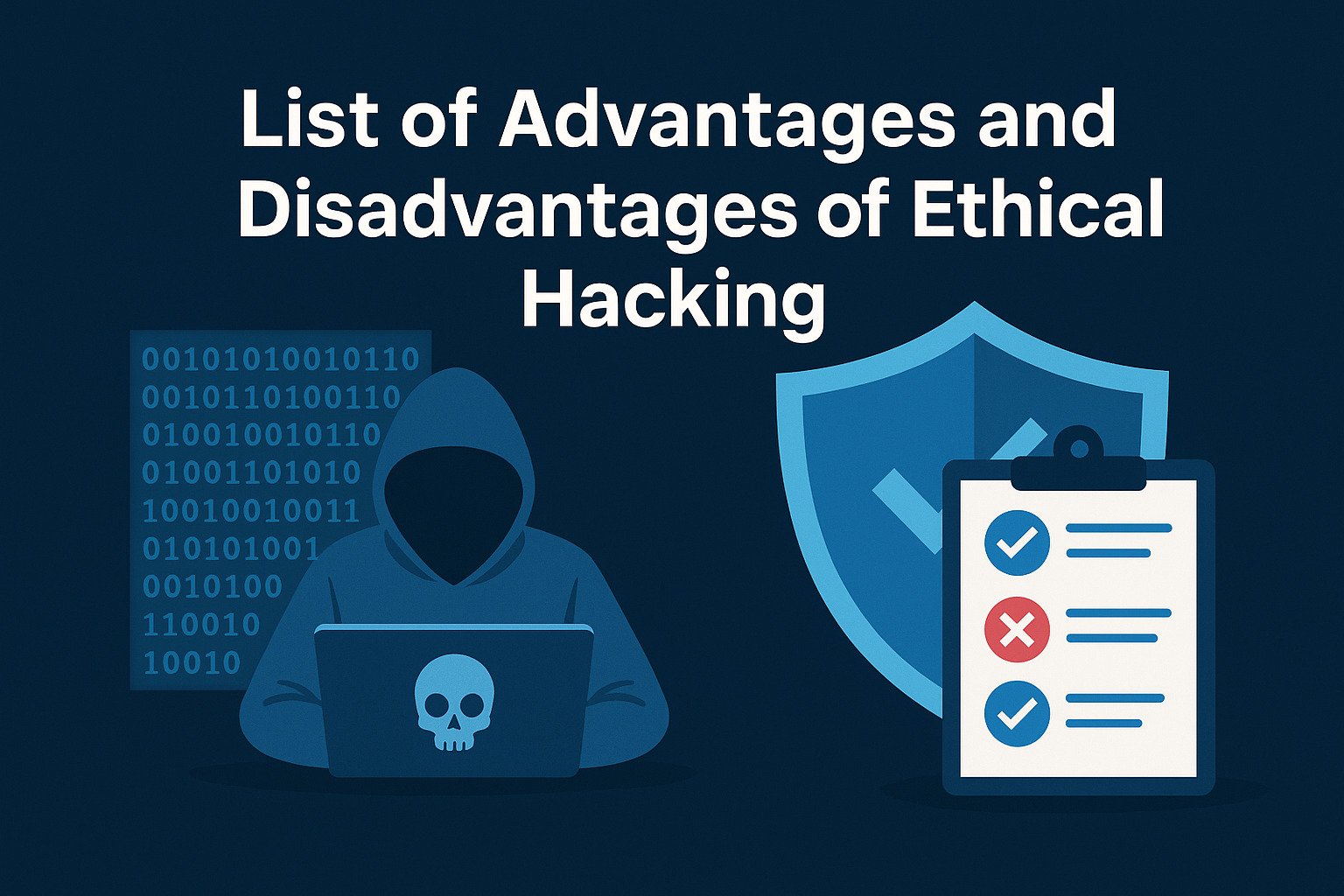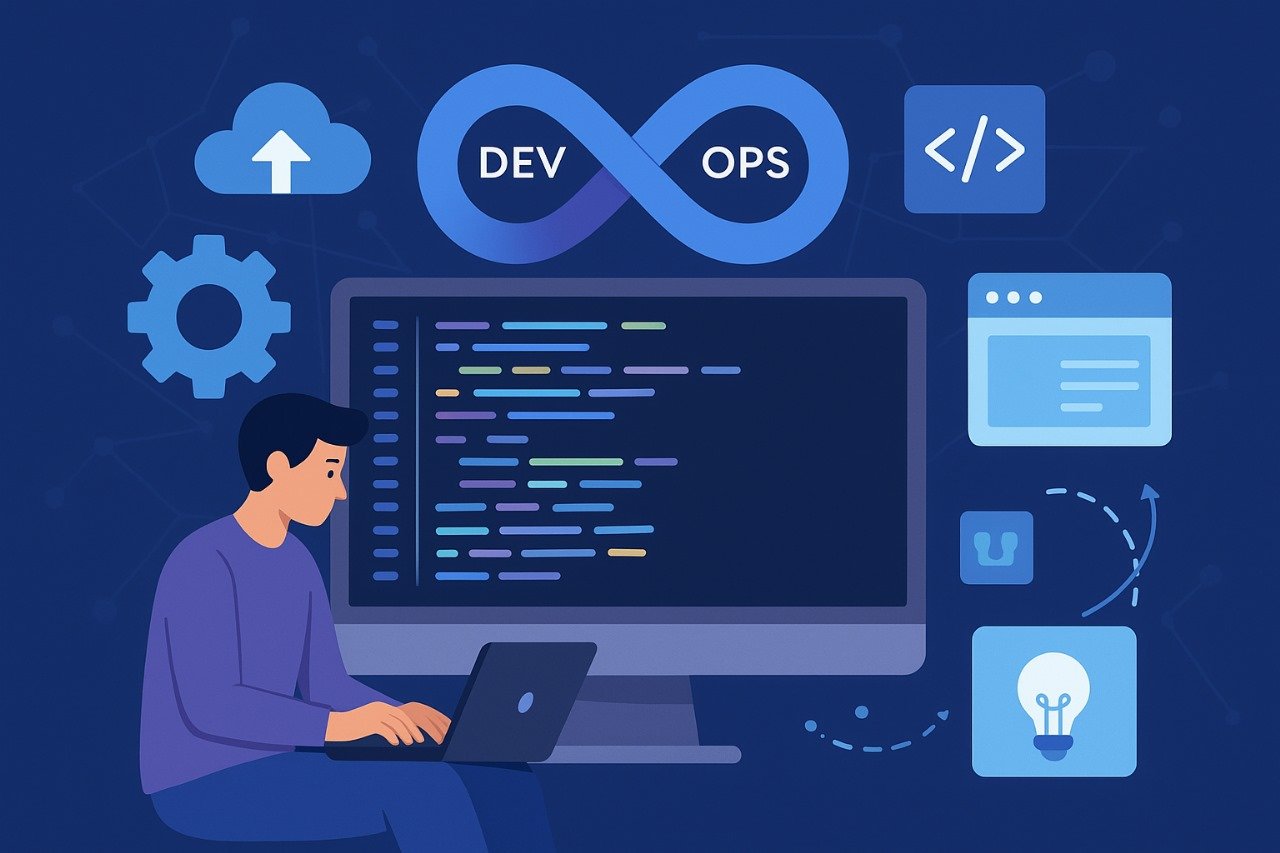With the information in the online world that rapidly changes, it is no surprise that the cybersecurity field should evolve accordingly. The more this is being embraced by organizations and people, cyber threats get far more complicated. The need for wide-ranging security measures is growing every day. Ethical hacking has turned out to be an important part of this security context as it is a practice pursued to detect and deal with security vulnerabilities in the operational system and networks.
On the other hand, ethical hacking, which is also called penetration testing and white-hat hacking, is the authorized simulation of cyber-validated security through the evaluation of a system or network. Unlike cybercriminals who make their living through exploiting loopholes, ethical hackers cooperate with companies to detect and resolve security issues before they are hacked by bad actors.
Advantages of Ethical Hacking
Below are some of the benefits of ethical hacking to organizations and individuals:
1. Discovers vulnerabilities:
Ethical hackers find the security problems that might not have been discovered otherwise.
2. Security is enhanced:
Through simulating real-world attacks, organizations can improve their defensive strategies.
3. Confidential information is protected:
Ethical hacking takes care of the issue of data breaches and keeps the confidential data from the wrong hands.
4. Developing trust:
Companies that make a pledge to the security of their service can achieve customer confidence and loyalty.
5. Correspondence:
This technique is used to meet the requirements of both law and industry standards.
Disadvantages of Ethical Hacking
Although ethical hacking is usually beneficial, there might be some bumps in the road as well. Here are the potential difficulties:
1. Expense:
Professional ethical hackers and expensive training may be hard to afford for companies.
2. The danger of system damage:
Testing may go wrong causing a system or a network to destroy themselves.
3. False confidence:
The sole reliance on ethical hacking might cause other security areas to become careless.
4. Improper ways of using knowledge:
There is the possibility that an individual might use the skills learned in such a way as to get in trouble.
5. Legal and ethical considerations:
A person has to strictly follow the legal and ethical rules when doing ethical hacking.
Difference Between Cybersecurity and Ethical Hacking
However, ethical hacking and cybersecurity, being closely associated but still different concepts. Cybersecurity is a wide range of tasks that aim at providing security for the digital information consisting of prevention, detection, and response to security threats. Security involves setting up several security policies, measures, and technologies in practice to ensure systems and data of the company are secure.
However, ethical hacking, on the other hand, is a specific practice of cybersecurity. This particular method focuses on the proactive detection of vulnerabilities by simulating real-world attacks. To achieve this, ethical hackers adopt the same tools and techniques that are used by black hats, but they do so legally and their main purpose is to improve security.
One of the significant differences is that cybersecurity professionals concentrate on defense - whereas ethical hackers are the ones who mimic attackers to test the defenses of systems. Both of these roles are vital to keeping a robust state of security. In this discipline, various opportunities exist for the learners who want to learn and also practice this in real life. People who want to become ethical hackers can enroll in an ethical hacking course in Surat to receive knowledge, and then they can obtain skills in this profession.
Is Ethical Hacking a Good Career?
Ethical hacking is one of the key employment opportunities that have become popular in the last few years. The fact that cyber threats keep changing and getting more sophisticated causes the demand for ethical hackers to grow. In almost every industry, companies are becoming more and more aware of the need for new proactive security initiatives and are ready to invest in the skilled employees who are able to protect the digital assets of the company.
These roles provide competitive wages, the prospect of professional development, and a sense of fulfillment as the employee protects the Internet and other digital platforms. Ethical hackers are often left cooling their heels at difficulty levels, as they need to be up-to-date with the issues surrounding threats and technological changes.
Besides ethical hacking, one can also get involved in some other related jobs in the cybersecurity field, such as a security analyst, penetration tester, or chief information security officer. For people who want to enter this field and learn, the ethical hacking course in Ahmedabad, or other big cities, would be a good place to start learning the fundamentals of cybersecurity through practical skills before joining the Job.
Scope of Ethical Hacking

The scope of ethical hacking is wide range and is growing more and more with both the practice and the development of technology. These are the issues where hacking plays the most important role:
1. Network Security:
Hacking is done by ethical hackers who evaluate both inside and outside networks in order to find vulnerabilities.
2. Web Application Security:
They are the ones who analyze web apps in search of security weaknesses that could possibly be manipulated by bad actors.
3. Mobile Application Security:
Besides the on-growing usage of mobile devices, ethical hackers also center on the topic of mobile applications security.
4. Cloud Security:
In the situation that cloud technology grows bigger and bigger, it is the ethical hackers who are in the team of the cloud security providers who analyze the cloud infrastructures.
5. Internet of Things (IoT) Security:
Ethical hackers test the security of connected devices and IoT ecosystems.
The ethical hacking arena is a very much moving and transforming space that every now and then new focuses come to the picture with technology progress. Its continuous transformation ensures that ethical hacking is a significantly relevant feature as part of cybersecurity strategies. Security.
Additionally, ethical hacking makes security a forward-looking process; thus, companies can prevent or address vulnerabilities before they can be used by hackers. Compared with the value it brings, ethical hacking does have some challenges but it currently outweighs the drawbacks. As cyber threats continue to morph and outsmart, the work of ethical hackers in keeping digital security will run parallel to the company's growth in importance. Those who want to get into this cryptocurrency domain have to be willing to try out new things, to experiment, and to research as well as to master the art of coding and computer programming.





















